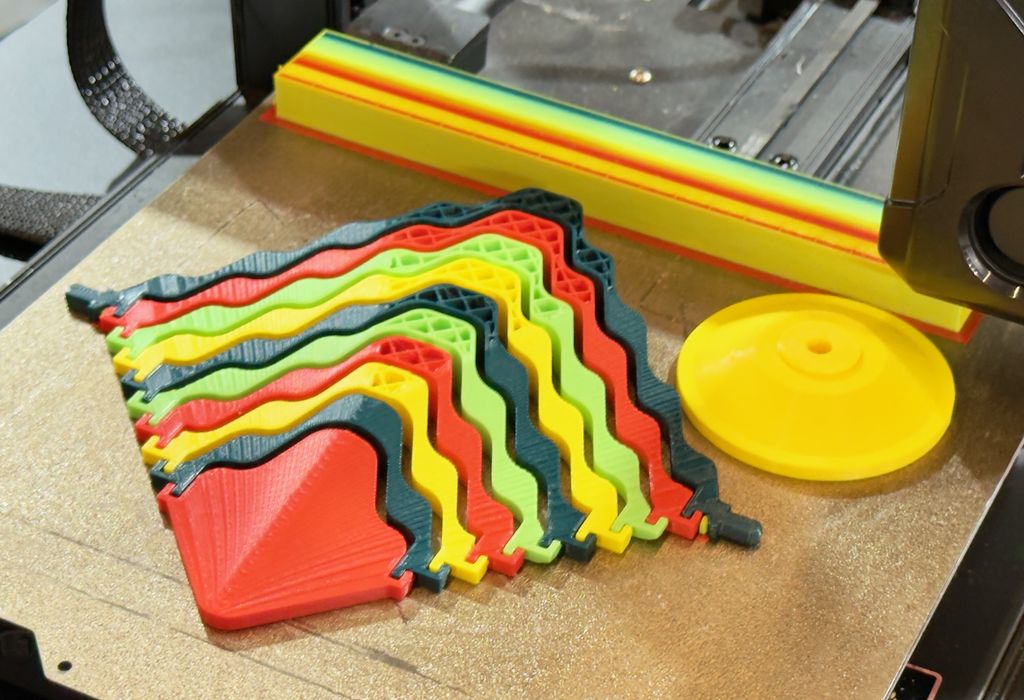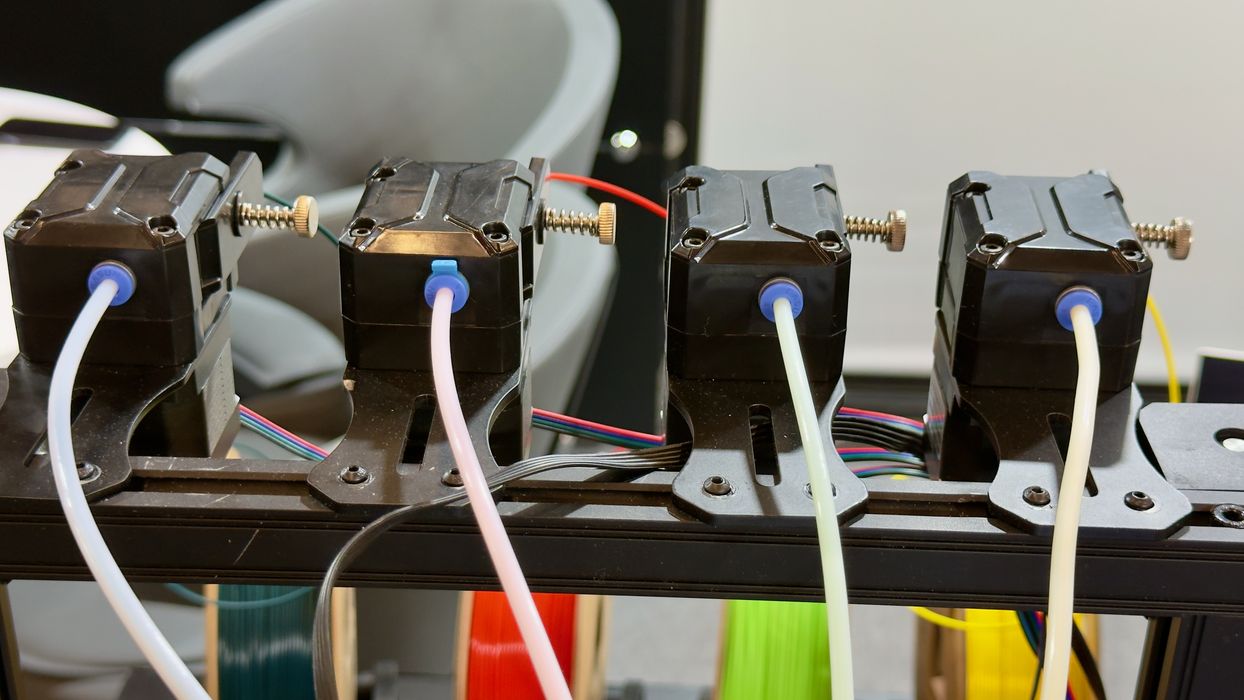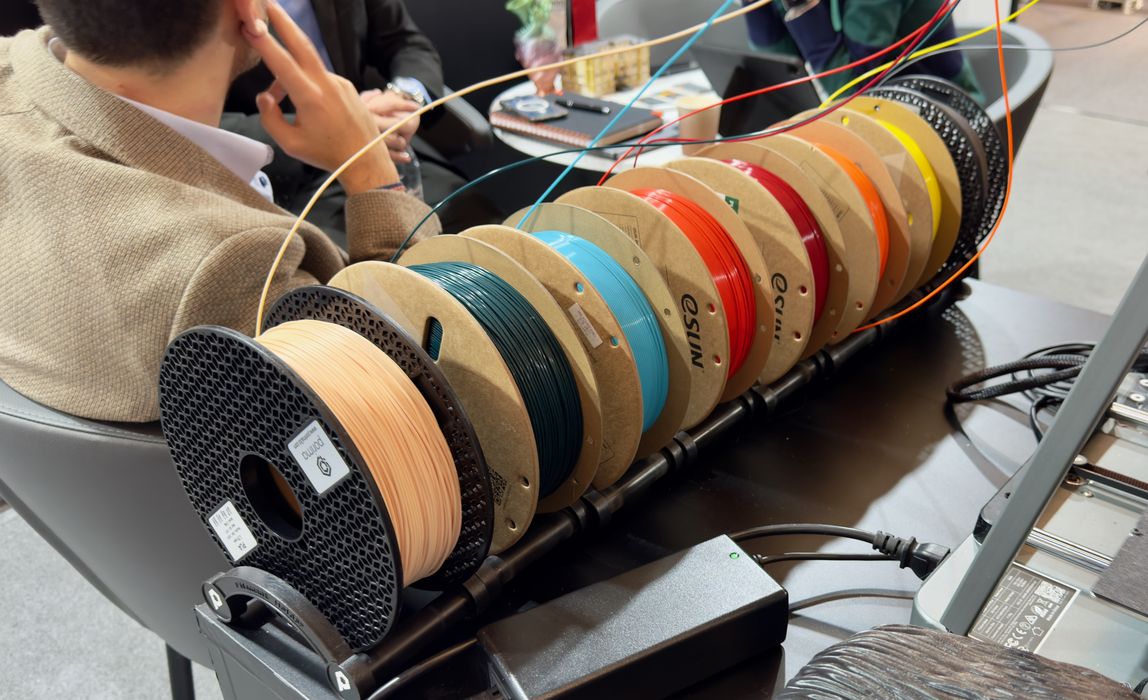
We had a chat with the folks from Co Print about their multicolor 3D print solution.
The Turkish company has been developing an external system to transform a single-color FFF 3D printer to a multicolor device. It works by swapping filaments that all lead to a single hot end, similar to how recent systems from Bambu Lab, Anycubic, and Creality operate.

The company now has a set of products that, when appropriately combined, can perform this transformation on a range of desktop 3D printers. This includes extruders, toolheads, and control units. Co Print markets these as bundles for standard configurations or as parts if you’re up for a non-standard configuration.

Their standard configuration involves four extruders, meaning four colors are possible. However, their system is able to handle up to 20 different colors at the same time, which would require a custom configuration.
Most recently, they’ve introduced high-speed capabilities with their Klipper integration. This has become quite necessary, as few 3D printer operators would trade high speed on their stock 3D printer for slow speeds on a Co Print modified device.
But they’ve succeeded, and you can now acquire a fully high-speed configuration from the company.

In our discussions, we learned they’ve partnered with Creality to implement Co Print features on the very popular Ender-3 V3 Plus desktop 3D printer, shown here. The multicolor capability is also multimaterial: this means it is possible to use soluble support material as one of the filaments, enabling the ability to easily 3D print very complex structures.
Next up for Co Print is to develop a kit for the Creality K2, a very popular professional-level desktop 3D printer. However, we were told it may not be possible to achieve a 20-filament configuration on that platform.
The cost of the system is reasonable, with their latest Klipper standard configuration selling for only US$289.90 (on sale now). That can take a standard high-speed desktop 3D printer from single material to multimaterial, giving it much of the same capabilities as Bambu Lab’s AMS-equipped A1 series, for example.
Via Co Print
